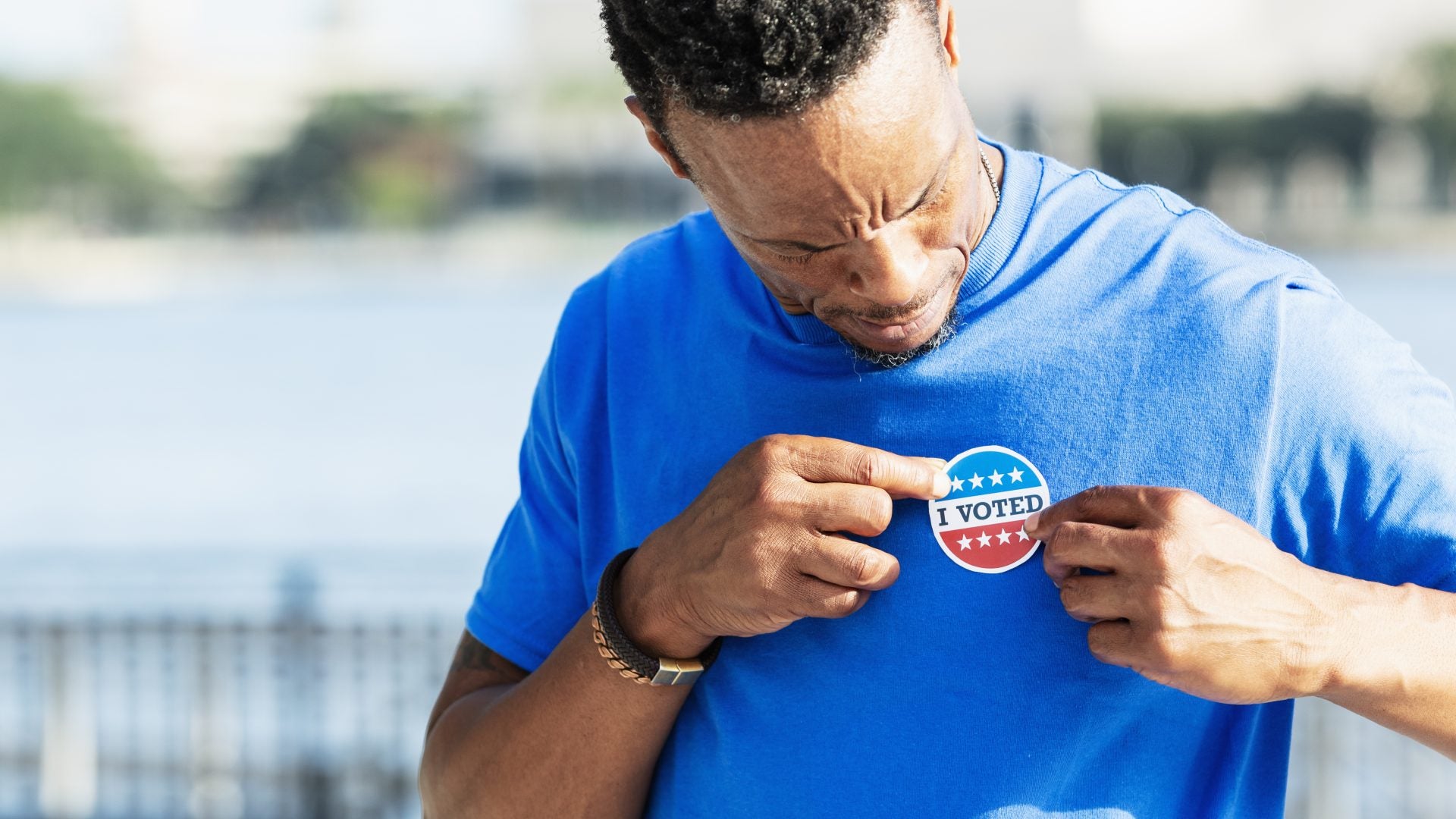
Before election day, headline after headline suggested that large groups of Black men were not going to vote or would vote against Vice President Kamala Harris’candidacy for President. As exit polls are released, it is clear that this fear was misplaced and informed by misinformation and disinformation. And as we legitimately dissect all of the “hows and whys” the electorate voted as they did, it is also critical that we dispel this myth that the majority of Black men were either blithely unaware of their political options or would be easily persuaded by misinformation.
Back in 2020, exit polls showed that 80 percent of Black men supported President Joe Biden in 2020. Four years later, the polls show that 78 percent of Black men supported Kamala Harris; a marginal 2 percent difference, which is well within the margin of error, and hardly a tectonic shift in support for President Trump. In fact, Black men supported Harris more than any other demographic of men – especially in key swing states. For example, in Michigan, nearly 9 in 10 Black men voted for Harris, according to exit polls from the Washington Post. And for the record, 91 percent of Black women voted for Vice President Harris.
These results were not a shock to me and my team at the Global Black Economic Forum because we have seen through our work that Black men were always part of her base of support. In fact, we held multiple discussions on this topic on our virtual voter registration and awareness town halls, Paint the Polls Black. And while Black Men are by no means a monolithic voting bloc, Kamala Harris has repeatedly made a strong case for steady leadership and economic policies that can improve our lives. The fact that her candidacy did not succeed with the majority of voters should not be saddled on the shoulders of Black men. Yet, many elected officials and pundits laid the groundwork to blame Black men in the event Trump won. By using racist tropes that Black men would fall for any bill of goods Trump was selling, we were used as a prop to sow discord and spread disinformation.
Any student of history knows that these disinformation campaigns are not new. It’s a tradition that dates all the way back to the Reconstruction era when former slave owners regularly misled and intimidated Black people not to vote. While the methods and technologies to spread disinformation have changed and become more sophisticated – their intentions have not. This election cycle, we saw a massive increase in artificial intelligence-related images suggesting that Black voters – particularly men – were endorsing Donald Trump when most of those images were false. According to a BBC Panorama report, Trump’s followers were intentionally targeting Black voters with deep fakes showing Black voters supporting him.
But now that the votes have been counted, we should take this moment to remember that the majority of Black men did not hand the White House to Trump. We want opportunities to build economic security and wealth, receive affordable healthcare, live in communities that are not plagued by violence and live in a nation where our civil rights are protected.
Throughout the presidential campaign, Donald Trump proposed a framework where our struggle to be treated fairly was pitted against our quest for economic opportunity as if those concepts were mutually exclusive. And on top of that, he repeatedly attacked Kamala Harris with dehumanizing and racist tropes. Trump also went as far to suggest that the majority of Black people would identify with his current legal entanglements – daring to compare his situation to the racial disparities and injustices that Black men face in the criminal legal system. As more polls and election analysis emerge, the verdict on this issue is clear: the majority of Black voters were paying attention.
Disinformation campaigns are not going away. As we move forward, we have to make a more concerted effort to understand Black male voters—and not just during the presidential election season. If we do that, we will have more comprehensive data that reflects what people actually believe and can help us better rebut these false narratives.
Black voters (including Black men) will continue to be on the frontlines fighting for both economic opportunity and social justice because we hold an unwavering and unflinching commitment to fighting for both our pocketbooks and our dignity.
Alphonso David is a civil rights attorney and the President and CEO of the Global Black Economic Forum.